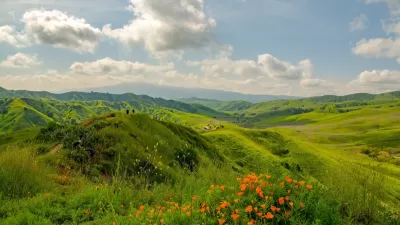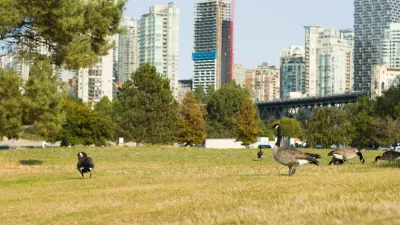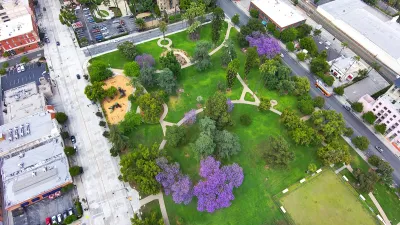The Los Angeles County Department of Parks and Recreation demonstrates how parks serve as vital community infrastructure by adapting to crises, offering public health services, disaster relief, and essential support for residents in need.

Parks are more than recreational spaces; they are critical infrastructure that supports communities in everyday life and during times of crisis. In Los Angeles County, the Department of Parks and Recreation (DPR) has played a pivotal role in addressing challenges like climate change, public health crises, and natural disasters. During the COVID-19 pandemic, DPR transformed parks into testing and vaccination sites, food distribution centers, and spaces for mental and physical well-being. Programs like Parks After Dark (PAD) in Motion and Park on the Move ensured that underserved communities had access to recreational opportunities. By leveraging its facilities and staff, DPR provided essential resources to residents, demonstrating the indispensable role of parks in public health and community resilience.
Beyond the pandemic, DPR has been instrumental in disaster relief efforts, particularly in response to California's worsening wildfires. During the Eaton Fire, DPR established Care Camps to support evacuated families, providing children with a safe space to learn and play while parents focused on recovery. The department also facilitated donation drives and partnered with organizations like the Dodgers Foundation and local museums to offer enriching experiences at no cost to affected families. Additionally, DPR organized community events such as concerts to aid emotional recovery, recognizing that parks serve as spaces for healing and social connection. These initiatives align with trauma-informed care principles, ensuring that communities receive holistic support during difficult times.
DPR’s success in crisis response is driven by its dedicated staff, innovative programming, and resilient infrastructure. From maintenance crews keeping facilities operational to recreation leaders organizing relief efforts, employees have shown exceptional commitment, even when personally impacted by disasters. As crises become more frequent due to climate change and other global challenges, DPR’s proactive and adaptive approach underscores the need for continued investment in parks and recreation. By serving as hubs for relief efforts, gathering spaces, and symbols of hope, parks remain at the heart of community resilience.
FULL STORY: Parks in Action: Meeting Community Needs During Times of Crisis

Alabama: Trump Terminates Settlements for Black Communities Harmed By Raw Sewage
Trump deemed the landmark civil rights agreement “illegal DEI and environmental justice policy.”

Planetizen Federal Action Tracker
A weekly monitor of how Trump’s orders and actions are impacting planners and planning in America.

The 120 Year Old Tiny Home Villages That Sheltered San Francisco’s Earthquake Refugees
More than a century ago, San Francisco mobilized to house thousands of residents displaced by the 1906 earthquake. Could their strategy offer a model for the present?

San Francisco Opens Park on Former Great Highway
The Sunset Dunes park’s grand opening attracted both fans and detractors.

Oregon Legislature to Consider Transit Funding Laws
One proposal would increase the state’s payroll tax by .08% to fund transit agencies and expand service.

Housing Vouchers as a Key Piece of Houston’s Housing Strategy
The Houston Housing Authority supports 19,000 households through the housing voucher program.
Urban Design for Planners 1: Software Tools
This six-course series explores essential urban design concepts using open source software and equips planners with the tools they need to participate fully in the urban design process.
Planning for Universal Design
Learn the tools for implementing Universal Design in planning regulations.
Clanton & Associates, Inc.
Jessamine County Fiscal Court
Institute for Housing and Urban Development Studies (IHS)
City of Grandview
Harvard GSD Executive Education
Toledo-Lucas County Plan Commissions
Salt Lake City
NYU Wagner Graduate School of Public Service





























